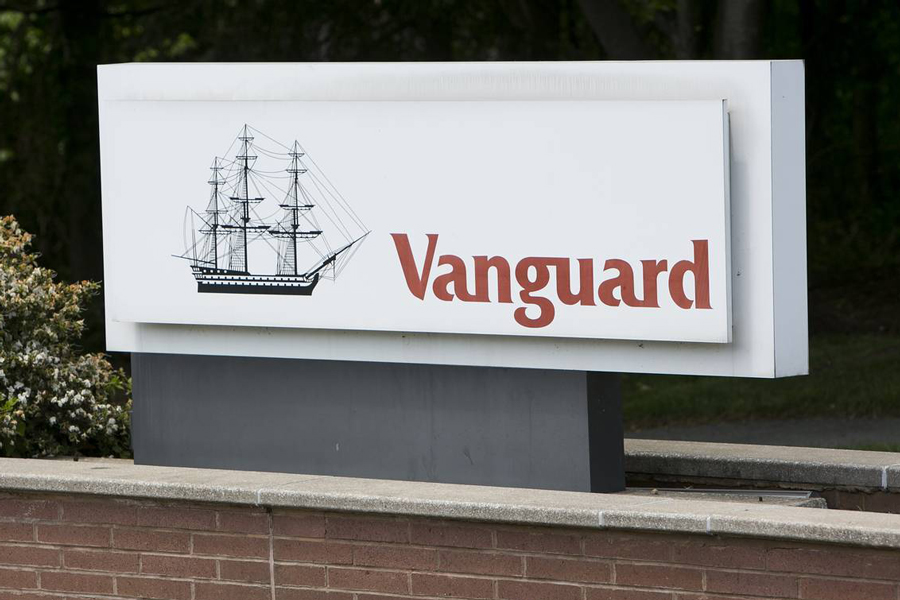

The Vanguard Group is pulling the plug on its 20-year effort to actively-manage a value-focused mutual fund by asking shareholders to approve merging the $1.1 billion Vanguard US Value Fund (VUVLX) into a passive index fund.
The move is music to the ears of Daniel Wiener, chairman and co-founder of Adviser Investments, who describes the quantitatively managed fund as a “failure” and a “loser.”
“The fund has been a loser and has only gotten worse since they let the (in-house) quantitative team take over management of it,” he said.
Value investing has been lagging growth investing for more than a decade, but the Vanguard value fund has been making matters worse by lagging a lower-cost, in-house index fund, the $77.1 billion Vanguard Value Index (VVIAX).
The index fund, where assets from the active fund will end up upon shareholder approval, charges 5 basis points and is down 12.2% from the start of the year. By comparison, the actively-managed value fund, which charges 22 basis points, is down 17.7% so far this year.
The more growth-oriented S&P 500 Index is down 38 basis points this year.
Meanwhile, Vanguard has another fund also competing for value investors, the $49.2 billion Vanguard Value ETFF (VTV), which charges just 4 basis points.
“Value investing has been out of favor in recent years, but VTV has pulled in $3.7 billion in the past year which is a sign that investors look to Vanguard’s index offering favorably,” said Todd Rosenbluth, director of mutual fund and ETF research at CFRA.
According to Vanguard’s announcement, the rationale for the fund merger is “significant overlap in holdings, similar characteristics, and highly-correlated returns.”
As Wiener details, the actively-managed value fund was strong out of the gate in June 2000, but has more recently not lived up to expectations or earned an expense ratio that is 17 basis points higher than the index.
The fund management was always computer driven and originally subadvised by legendary value manager Grantham, Mayo, Van Otterloo & Co.
In the wake of the bursting of the dot-com bubble through September 2002, the fund declined by 6.9% while the value index suffered a 29.8% decline. In 2007, Vanguard added a second manager to the fund, AXA Rosenburg, which was fired three years later. Meanwhile, Grantham, Mayo was fired in 2008, making room for an internal Vanguard quant team.
“What’s clear is that none of the manager changes enhanced US Value’s performance against the straight ahead value benchmark,” Wiener said.
The last time the active fund beat the benchmark was 2014.
The active fund has a three-year annualized return of negative 1.08%, a five-year annualized return of 2.8%, and a 10-year average of 9.5%.
The index, over the same periods, had annualized returns of 4.7%, 7.2%, and 10.9%.

Rajesh Markan earlier this year pleaded guilty to one count of criminal fraud related to his sale of fake investments to 10 clients totaling $2.9 million.

From building trust to steering through emotions and responding to client challenges, new advisors need human skills to shape the future of the advice industry.

"The outcome is correct, but it's disappointing that FINRA had ample opportunity to investigate the merits of clients' allegations in these claims, including the testimony in the three investor arbitrations with hearings," Jeff Erez, a plaintiff's attorney representing a large portion of the Stifel clients, said.

Chair also praised the passage of stablecoin legislation this week.

Maridea Wealth Management's deal in Chicago, Illinois is its first after securing a strategic investment in April.
Orion's Tom Wilson on delivering coordinated, high-touch service in a world where returns alone no longer set you apart.
Barely a decade old, registered index-linked annuities have quickly surged in popularity, thanks to their unique blend of protection and growth potential—an appealing option for investors looking to chart a steadier course through today's choppy market waters, says Myles Lambert, Brighthouse Financial.
